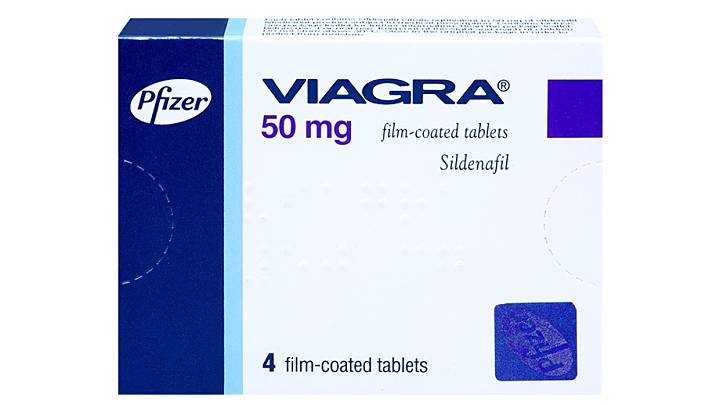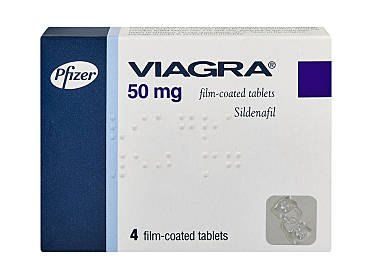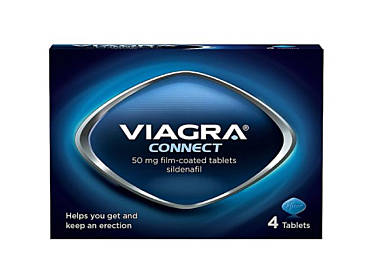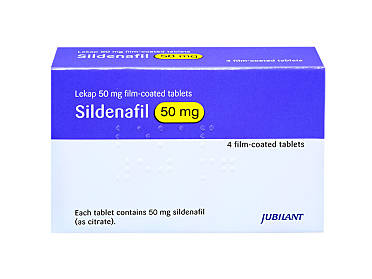Viagra Dosage: What Dose Is Right For Me?

Medically reviewed by
Dr Babak AshrafiLast reviewed: 25 Nov 2022
While Viagra has been improving the sex lives of men with erectile dysfunction (ED) for over 20 years,to get the most out of it, you need to make sure you’re on the correct dose. Being on the right dose not only affects how well Viagra works, but can also make side effects less likely.
The usual starting dose of Viagra is 50mg, which needs to be taken around an hour before sex. The highest Viagra dose is 100mg and the lowest dose is 25mg. You should never increase your dose without getting advice from your doctor beforehand, and you should only ever take as much as you’ve been prescribed. Your doctor will work with you to make sure you’re on the right dose of Viagra for your needs, and if you still aren’t getting the results you want, they may be able to prescribe a more suitable treatment.
Read on to learn more about the different Viagra doses available and how they affect you.

Viagra dosages available
Viagra is available in 3 different dosages, and the dose you’re prescribed will depend on your ED symptoms and any other health conditions you may have. The usual starting dose for Viagra is one 50mg tablet. This means it contains 50mg of the active ingredient, which is sildenafil citrate.
This dose may not work for everyone, so you may still find it difficult to get or keep an erection long enough for sex. If this is the case, your doctor can increase your dose to 100mg to see if you get the results you want. If 50mg does work for you, but you get side effects, your doctor may reduce your dose to see if you still get the results you want but with less side effects.
Standard dose: 50mg Viagra
50mg is the usual starting dose for Viagra. This will be prescribed if your doctor has checked your medical history to make sure it’s safe for you to take and you do not take any medications that could interact with it,. This is considered the best starting dose as it’s usually safe for the person taking it and can be increased or decreased as needed by your doctor to suit your needs.
If you are prescribed this dose, you should aim to take it one hour before sex, and swallow it whole with a glass of water to get the best results. Never take more than your prescribed dose or more than 1 tablet per day.
Viagra is also available over the counter at 50mg in the form of Viagra Connect.
Maximum dose: 100mg Viagra
100mg is the maximum dose of Viagra and is usually prescribed for:
- men with severe erectile dysfunction
- patients who have found lower doses to be ineffective and have been told by their doctor to increase their dose
Taking more than 100mg will not make Viagra work better and will increase side effects. It is not safe to increase your dose without speaking to a doctor. Always follow your doctor's advice and never take more medication than you have been prescribed.
Lowest dose: 25mg Viagra
25mg is the lowest dose of Viagra. If you get side effects that bother you while taking Viagra, your doctor may suggest taking this lower dose to see if this lessens side effects while still helping you get and keep an erection. You may also be started on a lower dose if you have high blood pressure and take alpha blockers.
The 25mg dose of Viagra can also be used if you are taking certain medications called protease inhibitors. You might take these if you are getting treatment for HIV.
You can request Viagra and highlight your preferred dose for a doctor without leaving the house. Simply complete a short medical questionnaire to get started. Our doctors will make sure your treatment is suitable and safe for you to take. They will also check which dose is best for you and whether your preference is suitable based on your answers. If it is, we’ll send it straight to your home in discreet packaging.
In what doses is generic Viagra available?
Generic Viagra, more commonly known as Sildenafil, is available in the same doses as Viagra, 25mg, 50mg, and 100mg. Sildenafil and Viagra work in exactly the same way and contain the same ingredients, so if you are prescribed sildenafil, it will be in the same doses as you would be with Viagra.
The only difference between Viagra and sildenafil is the look and shape of the tablet and the name on the tablet pack. Non branded treatments like Sildenafil are usually a cheaper alternative to branded medications like Viagra, and because of this are more likely to be prescribed on the NHS.
What dose of Viagra should I take?
The dose of Viagra you should take is the dose you are prescribed by your doctor. This is because the correct dose of Viagra will differ from person to person depending on how severe their erectile dysfunction is. Doses are also altered depending on medical history and whether you’re taking another medication that might interact with Viagra.
You should take Viagra as your doctor has prescribed and speak to your doctor if you think your current dose is not working. Sometimes it takes time for Viagra to work as it should, so you may need to try it more than once, at different times in the day.
Taking Viagra for the first time
Whether it’s your first time taking Viagra or you’ve taken it before you should always take it an hour before you want to have sex with a glass of water.
It should start working within the hour, but can start sooner or take longer. If you’ve just eaten a large meal, it can take up to 2 hours. Viagra lasts for about 2-4 hours after you’ve taken it, and this won’t change the more you use it.
When taking Viagra for the first time, it helps if you are as relaxed as possible. For Viagra to work correctly, you must be in the right frame of mind and be sexually aroused. It can take your body a while to get used to any new medication, so you may need to take it a few times for it to have the best effect. If Viagra does not work the first time, try again the next day, or the next time you plan to have sex. You should try for up to 8 times on different occasions before you can be sure it won’t be any more effective. It can take this long for levels of the drug to build up enough in your body.
You should limit your alcohol intake, as this can increase side effects and lower the chances of Viagra working effectively. Remember that Viagra can help you get and keep an erection, but it does not affect how quickly you ejaculate. You may also need to use premature ejaculation treatment.
Changing your current dose
To change your current dose, you will first need to speak to your doctor. You should never change dose without consulting them beforehand.
If you want to change dose because Viagra isn’t working for you, your doctor may recommend trying it a few more times. This is because It can take some time for it to work as it should, especially if you are nervous or are not sexually arouse. If you keep trying and Viagra doesn’t work, your doctor will recommend changing dose or an alternative treatment.
If you want to adjust your dose because you are getting side effects, you should speak to your doctor beforehand as they may think changing treatment is more suitable than changing dosage.
If Viagra is not working for you, there are alternative treatments available for ED. You can also try an erectile dysfunction trial pack, which contains 3 different ED treatments. Your doctor may recommend using different medications to see if another treatment works better.
Which dose of Viagra works best?
All viagra doses work just as well as each other, but the best dose for you will depend on your symptoms. Some people may find that 25mg of Viagra is enough to get and keep an erection, with fewer side effects, while others need 100mg in order to get results. You may find that the recommended dose of 50mg is right for you, but it can take a few tries before any dose works as it should.
Which dose of Viagra works the quickest?
Every dose of Viagra will start working in around the same amount of time. Changing dose does not change how fast the medication starts working. Sometimes Viagra can work in as little as 30 minutes, but this depends on how sexually aroused your arel, how quick your metabolism is, and whether / what you have eaten. But most of the time, Viagra will get to work within an hour, regardless of the dose you’re taking.
What is the maximum dose of Viagra that is safe to take?
The maximum dose of viagra that’s prescribed is 100mg. This is because taking more Viagra than this could be potentially unsafe. Taking more than 100mg of Viagra will not increase the effects of the medication, make it work faster or last longer, but it will greatly increase the rise of getting serious side effects.
If you have other medical conditions or take certain medications, it may not be safe for you to take more than 25mg or 50mg of Viagra. Always take your Viagra dose as your doctor has prescribed and speak to them if you think it is not working. They may recommend a different erectile dysfunction treatment.
Is there anything that can worsen the effect of Viagra?
Your general health, lifestyle choices and any other medication you’re taking can affect how Viagra works.
To make sure you get the most out of Viagra, you should:
- avoid eating high fat, greasy, or large meals, as this affects how your body absorbs Viagra, which can weaken or delay the effects
- avoid drinking alcohol before using Viagra, as elevated alcohol levels make it more difficult to get an erection with or without Viagra and can also increase the likelihood of getting side effects when using Viagra
- make sure you are not tired, exhausted, or stressed, as this can make getting an erection with Viagra more difficult
- avoid putting too much pressure on yourself (or a partner), as this can make it harder to get and keep an erection
- Make sure you’re aroused. Viagra won’t work for you if you’re not aroused regardless of the dose you’re taking.
These factors are more likely to affect how Viagra works for you than the dose you’re taking. So it’s important to make sure you’re doing everything you can to get the most out of your treatment. And if it’s not working initially, it might when you try again. More than half of all patients who struggle to get an erection after their first dose of 50mg of Viagra do get their desired results with repeated use. So if it’s not working for you, and you aren’t getting side effects, keep trying. Your doctor will suggest you try to use it on 8 different occasions. If you’re still not getting results, they will suggest an alternative treatment if it’s suitable for you.
How does Viagra help with erectile dysfunction?
Viagra helps with erectile dysfunction by improving blood flow to your penis, making it easier to get and maintain an erection that’s hard enough for sex. It’s a type of medication known as a PDE-5 inhibitor. These medications work by blocking an enzyme called phosphodiesterase 5 (PDE-5) which breaks down a substance in your body called cyclic guanosine monophosphate (cGMP). cGMP is what causes erections when it reaches a certain level if you’re aroused, so by blocking the enzyme that breaks this down, it’s easier for you to get hard.
Is sildenafil also used for other medical conditions?
Sildenafil can be used to treat other conditions such as pulmonary hypertension, which is high blood pressure in the blood vessels of the lungs. It has also been used in treating several other diseases, including Raynaud's syndrome, when standard treatments are not effective.
This is likely to be because sildenafil was originally developed for patients with heart disease. But while testing the medication, researchers noticed that sildenafil caused a prolonged erection in patients. This led to sildenafil's main use in treating erectile dysfunction.

Dr Babak Ashrafi Clinical Lead for Service Expansion
Accreditations: BSc, MBBS, MRCGP (2008)
Babak studied medicine at King’s College London and graduated in 2003, having also gained a bachelor’s degree in Physiology during his time there. He completed his general practice (GP) training in East London, where he worked for a number of years as a partner at a large inner-city GP practice. He completed the Royal College of GPs membership exam in 2007.
Meet our doctorsLast reviewed: 25 Nov 2022
-
About sildenafil (Viagra), National Health Service [accessed August 2022]
-
Sildenafil, Patient Information Leaflet, EMC [accessed August 2022]
-
Sildenafil 100mg film-coated tablets, Summary of Product Characteristics, EMC [accessed August 2022]
-
SIldenafil 50mg film-coated tablets, Summary of Product Characteristics, EMC [accessed August 2022]
-
Sildenafil, NICE/British National Formulary [accessed August 2022]







